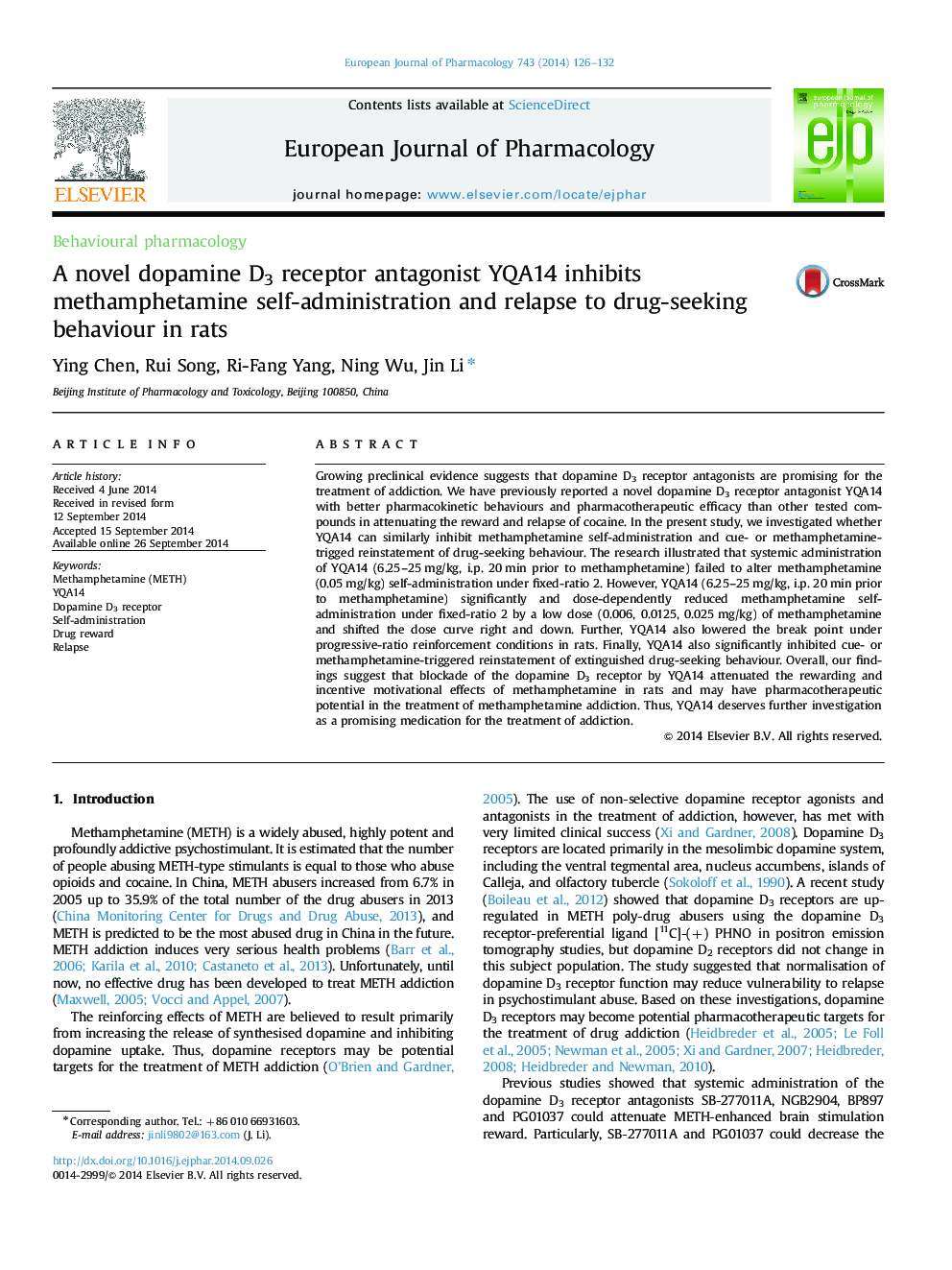| Article ID | Journal | Published Year | Pages | File Type |
|---|---|---|---|---|
| 5827584 | European Journal of Pharmacology | 2014 | 7 Pages |
Abstract
Growing preclinical evidence suggests that dopamine D3 receptor antagonists are promising for the treatment of addiction. We have previously reported a novel dopamine D3 receptor antagonist YQA14 with better pharmacokinetic behaviours and pharmacotherapeutic efficacy than other tested compounds in attenuating the reward and relapse of cocaine. In the present study, we investigated whether YQA14 can similarly inhibit methamphetamine self-administration and cue- or methamphetamine-trigged reinstatement of drug-seeking behaviour. The research illustrated that systemic administration of YQA14 (6.25-25Â mg/kg, i.p. 20Â min prior to methamphetamine) failed to alter methamphetamine (0.05Â mg/kg) self-administration under fixed-ratio 2. However, YQA14 (6.25-25Â mg/kg, i.p. 20Â min prior to methamphetamine) significantly and dose-dependently reduced methamphetamine self-administration under fixed-ratio 2 by a low dose (0.006, 0.0125, 0.025Â mg/kg) of methamphetamine and shifted the dose curve right and down. Further, YQA14 also lowered the break point under progressive-ratio reinforcement conditions in rats. Finally, YQA14 also significantly inhibited cue- or methamphetamine-triggered reinstatement of extinguished drug-seeking behaviour. Overall, our findings suggest that blockade of the dopamine D3 receptor by YQA14 attenuated the rewarding and incentive motivational effects of methamphetamine in rats and may have pharmacotherapeutic potential in the treatment of methamphetamine addiction. Thus, YQA14 deserves further investigation as a promising medication for the treatment of addiction.
Related Topics
Life Sciences
Neuroscience
Cellular and Molecular Neuroscience
Authors
Ying Chen, Rui Song, Ri-Fang Yang, Ning Wu, Jin Li,
